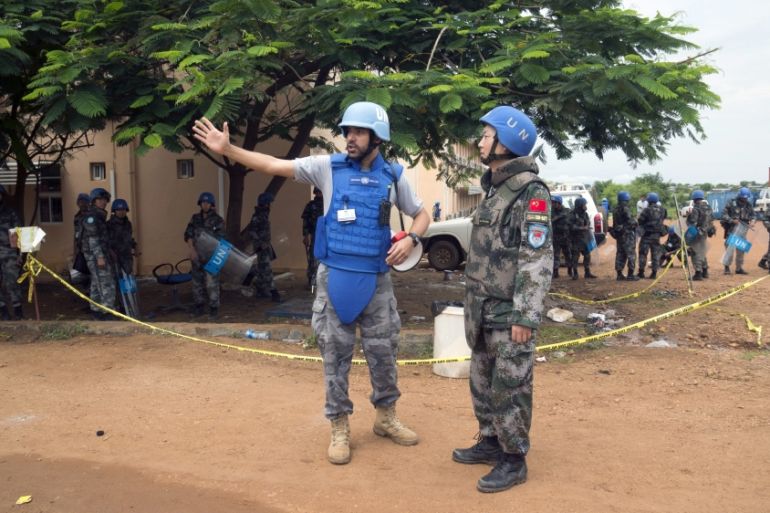South Sudan rejects 4,000 additional UN peacekeepers
Government move is a reversal of an earlier decision to accept the deployment of the regional protection force.

South Sudan has announced it will no longer accept the deployment of an additional 4,000 United Nations peacekeepers, saying the security situation in the county has improved.
The regional protection force, authorised by the UN Security Council in August after renewed fighting in the capital, Juba, is meant to strengthen the 13,500-strong UN peacekeeping mission in South Sudan
|
|
“The government of South Sudan has the ability to provide security and stability for the country and for its citizens without the deployment of a … protection force,” South Sudan’s Foreign Ministry’s spokesperson Mawien Makol Ariik said on Wednesday.
The government’s move is a reversal of its earlier decision in November to accept the troops’ deployment.
Defence Minister Kuol Manyang Juuk also said there was no need for the regional protection forces to be deployed in South Sudan.
“Most of the people abroad still believe that there is fighting in Juba and around the country … but Juba is now secure,” Juuk told DPA news agency.
READ MORE: South Sudan accepts 4,000 more UN peacekeepers
Juuk’s remarks contradict reports of recent fighting in the north and south of the country.
The South Sudanese government had warned in August 2016 that the deployment of more UN forces would marginalise its sovereignty, but later gave its consent amid the threat of an arms embargo.
In December, a UN human rights commission urged a rapid deployment of the additional peacekeepers amid reports of ethnic killings.
A political split between President Salva Kiir, an ethnic Dinka, and his former deputy Riek Machar escalated into a military conflict in December 2013. Tens of thousands have been killed and more than two million displaced.
A unity government was formed in April, but fighting broke out again in July, sending Machar into exile.
The UN’s top human rights official has previously blamed South Sudanese government troops and rebels loyal to the president of ethnically targeted violations, including extrajudicial executions and sexual violence incidences in August 2015.

The United Nations Mission in South Sudan (UNMISS) has previously faced criticism for failing to fully protect civilians facing violence.
In early November, Ban Ki-moon, the former UN secretary-general, dismissed the commander of the UNMISS force following a damning report that accused the peacekeepers of failing to protect civilians during the outbreak of violence in July.
The report from a UN special investigation found that a lack of leadership in the UNMISS ended in a “chaotic and ineffective response” during the heavy fighting in the capital, Juba, from July 8 to 11 that killed dozens of people.